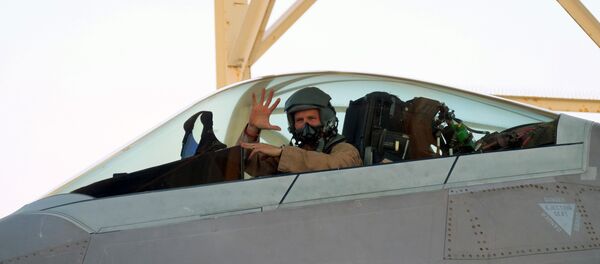A Syrian deal could be announced as soon as Friday, timed to follow a possible meeting by US President Donald Trump and Russian President Vladimir Putin in Vietnam, AP reports.
According to published reports, the agreement would revolve around deconfliction between the substantial presence of US and Russian military assets in and around Syria, decreasing the overall level of violence between various militant groups in Syria, and reviving peace talks through the United Nations.
"The Russians have been nothing but professional, cordial and disciplined," Lt. Gen. Stephen Townsend, Iraq-based command of the US coalition against Daesh, said in August when asked about the deconfliction line between the two world powers.
"Very often the Russian contribution to the fight against Daesh goes unrecognized," Max Abrahms of the Council on Foreign Relations told Sputnik News in July. The US media frequently leaves out Russia’s stabilizing role when it comes to reporting on Syria.
In July, the US, Russia and Jordan brokered a deal for a partial-ceasefire in southern Syria based on "de-escalation zones" to limit violence in the war-torn country. The deal emerged following the first Trump-Putin meeting at the G20 summit in Hamburg, Germany.
Russian Foreign Minister Sergey Lavrov noted the diplomatic achievement was the "best confirmation that when we deal with concrete matters, not speculations, we can achieve results," while his counterpart, US Secretary of State Rex Tillerson, remarked that the ceasefire was the "first indication of the US and Russia being able to work together in Syria."
Any new agreement will likely build upon the successes of the initial ceasefire.
Russia has participated in numerous diplomatic engagements with Turkey and Iran in Astana, Kazakhstan to resolve the Syrian crisis. Former US President Barack Obama never offered a clear vision on what the US response to the crisis in Syria would be, while his successor has made defeating Daesh the top priority.
One of the more thorny issues is the fate of Syrian President Bashar al-Assad, who the US side has said for years should be removed from power. Israel is reportedly concerned about the presence of Iranian-supported militias near its borders, a consideration that will likely factor into the overall calculus of a potential new agreement.
On Thursday, US State Department spokeswoman Heather Nauert told reporters, “We believe that the Geneva process is the right way to go,” adding that a UN-led effort was “a long way off, but we’re getting a little bit closer.”
On the same day, Tillerson said there needed to be “sufficient substance” to make it worth the time for Trump and Putin to meet. Without trying too hard to read tea leaves, an agreement on Syria just might be the “substance” he was talking about.




